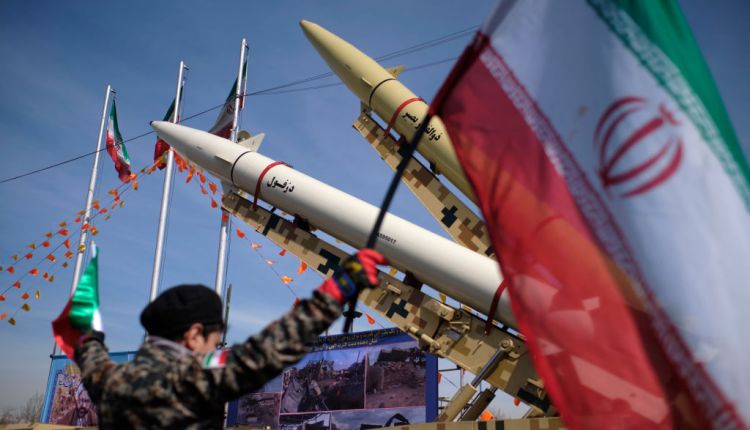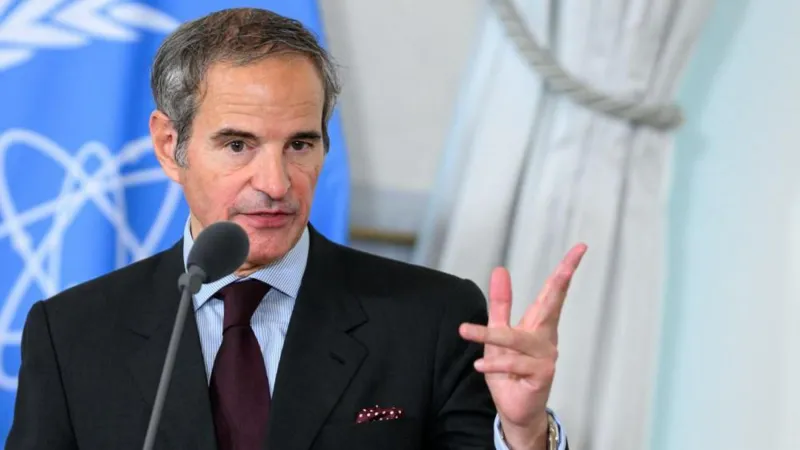The head of the United Nations’ nuclear watchdog has said Iran could resume enriching uranium within months, contradicting former U.S. President Donald Trump’s claim that recent American strikes “completely obliterated” Tehran’s nuclear program.
Rafael Mariano Grossi, Director General of the International Atomic Energy Agency (IAEA), made these remarks during an interview with CBS’s Face the Nation, offering a sobering assessment of the actual impact of U.S. military strikes carried out earlier in June on three key Iranian nuclear sites. While acknowledging that the facilities suffered “severe damage,” Grossi said the damage was far from total.
“They can have, in a matter of months—or less than that—a few cascades of centrifuges spinning and producing enriched uranium,” Grossi said. He added that despite the bombing, Iran still retains the knowledge, technical infrastructure, and ambition necessary to rebuild quickly. “Iran is a very sophisticated country in terms of nuclear technology,” he said. “The industrial capacity is there. The knowledge is there.”
The U.S. strikes, which followed an Israeli assault on Iran’s nuclear infrastructure earlier in the month, were touted by Trump as a decisive blow to Iran’s nuclear capabilities. “We totally obliterated their three main nuclear facilities,” Trump told Fox News, emphasizing that the attack on the Fordo underground enrichment site—thought to be impenetrable—had caught Tehran by surprise.
However, Grossi’s comments are more in line with early intelligence assessments. A preliminary report from the Pentagon’s Defense Intelligence Agency (DIA), first reported by CNN, concluded that Iran’s nuclear program may have only been set back by a few months. Intelligence sources also suggested Tehran may have moved some enriched uranium offsite before the strikes, a move that Trump dismissed as unlikely due to the material’s weight and handling risks. “It’s very heavy, very dangerous to do,” he said.

Nevertheless, Grossi noted that it would have been logical for Iran to take protective measures ahead of the anticipated attacks. “We don’t know where this material could be, or if part of it was under attack during those 12 days,” he said. The IAEA had previously reported that Iran possessed more than 400 kilograms of highly enriched uranium—a quantity that could, if further enriched, be used to build a nuclear weapon.
Adding to the skepticism about the operation’s long-term success, The Washington Post reported that intercepted communications between senior Iranian officials revealed that even they considered the damage from the strikes to be less than expected. While U.S. military officials have described the attack as a “historic success,” they have provided little evidence regarding its effectiveness in crippling Iran’s nuclear program.
Republican lawmakers who were briefed on the classified operation have also acknowledged that the military’s mission may not have aimed to eliminate all nuclear material, suggesting a more tactical goal rather than strategic disarmament.
The uncertainty surrounding the effectiveness of the strikes is compounded by Iran’s recent diplomatic posture. The Iranian government has moved to reduce international oversight of its nuclear program. The country’s parliament has passed a bill halting cooperation with the IAEA, and Foreign Minister Abbas Araghchi has hinted at the possibility of Iran withdrawing from the Non-Proliferation Treaty (NPT)—a move that would remove a critical barrier to nuclear weapon development.

Grossi expressed deep concern about this development. “We have to go back to the table and have a technically sound solution,” he said, emphasizing the need for international inspectors to regain access to Iran’s nuclear sites. He also revealed that even before the recent military confrontations, Iran had failed to provide credible explanations about traces of uranium found at undeclared sites.
“We didn’t see a program that was aiming directly at weapons, but they were not answering very, very important questions,” he noted.
Despite the political declarations from Washington, Grossi’s assessment paints a more nuanced picture: while the U.S. and Israeli strikes may have disrupted Iran’s nuclear program temporarily, they did not destroy its foundations. Iran retains the capacity, and possibly the materials, to resume enrichment and continue its nuclear ambitions if it chooses.
Sources




